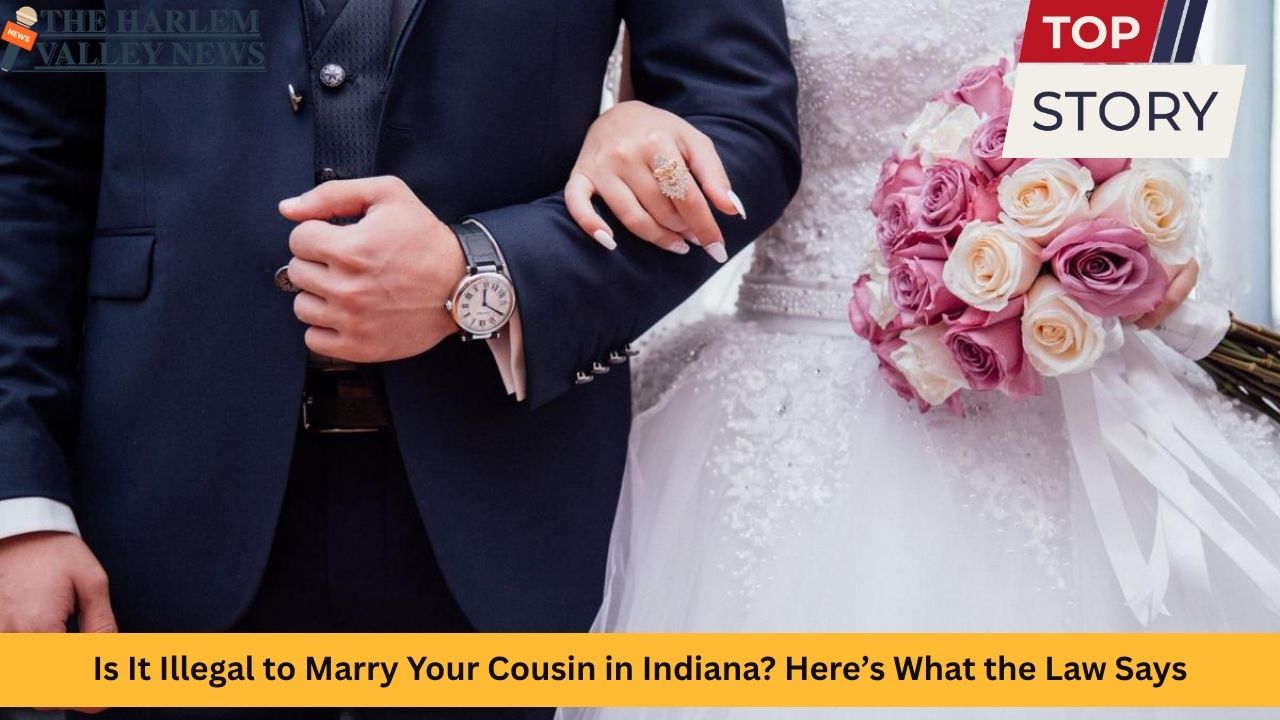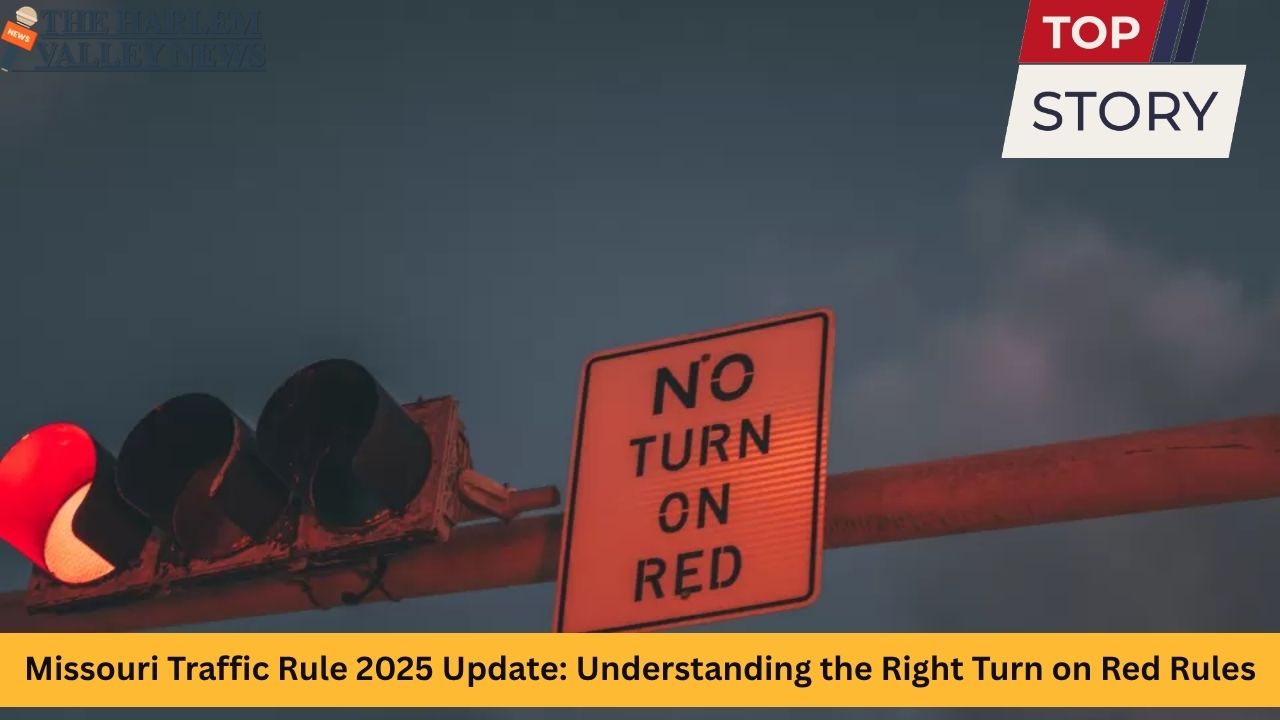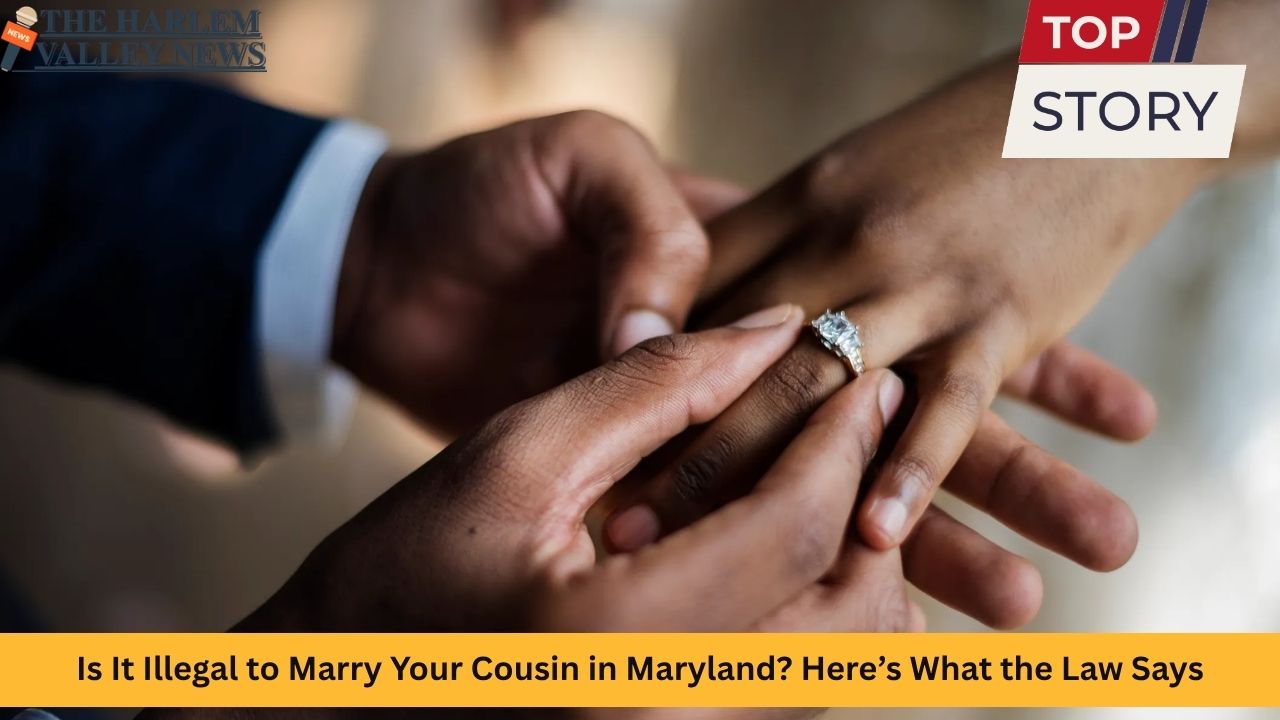Marriage laws can be complex, and they often vary significantly from state to state. Among the more controversial topics is cousin marriage—a practice that’s perfectly acceptable in some places, banned in others, and subject to various caveats in many U.S. states. Indiana’s laws on cousin marriage are especially nuanced, sparking frequent curiosity from residents of Indianapolis, Fort Wayne, Evansville, and across the Hoosier State. This article will explain, in detail, whether it is legal to marry your cousin in Indiana, the reasoning behind these laws, and how Indiana compares to the rest of the country.
Understanding Cousin Marriage
What Constitutes a Cousin?
Most people understand “cousin” to mean a child of one’s aunt or uncle, also known as a first cousin. Further distinctions include:
-
Second cousins: children of your parents’ first cousins.
-
Double cousins: when two siblings from one family marry two siblings from another family, and their children are cousins through both maternal and paternal lines.
-
Half cousins: sharing only one grandparent in common.
For legal purposes in Indiana, the focus is almost exclusively on first cousins.
Historical Context of Cousin Marriage
Cousin marriage has a long history. It was once common, especially in smaller communities or during earlier generations, to marry within extended families. Famous historical figures like Charles Darwin and Albert Einstein married their first cousins. The practice was intended to preserve wealth, land, and familial alliances or simply reflect the limited pool of marital candidates.
As American society modernized and cities such as Gary, South Bend, and Carmel grew, the necessity—and public acceptance—of cousin marriage diminished. Advances in genetics raised questions about health risks to the children of close relatives, prompting many states to rewrite their marriage laws.
What Does Indiana Law Say?
Statutory Language
Indiana law directly answers the question: Can you marry your cousin in Indiana? The state’s statute is explicit. Two people cannot marry if they are more closely related than second cousins, with one exception: first cousins may marry if and only if both individuals are at least 65 years old.
This means that:
-
Marriages between first cousins who are both 65 or older are legal in Indiana.
-
Individuals under 65 cannot legally marry their first cousins in Indiana.
-
Marriages between second cousins (or more distant relatives) are legal regardless of age.
-
Marriages between closer blood relatives (such as siblings or parent-child) remain categorically prohibited, regardless of age.
The Age Caveat: Why 65?
Indiana’s law is unique in that it allows first cousins to marry only if both are at least 65. This is based on the premise that individuals of this age are unlikely to have children together, thus sidestepping the perceived genetic risks associated with cousin marriage. In rural parts of Indiana, such as near Bedford or Washington, older couples sometimes consider this option for reasons like companionship, shared property, or inheritance structures.
How Does Indiana Compare to Other States?
Cousin marriage laws in the United States form a patchwork:
-
States such as California, New York, and Florida allow first cousins to marry with few or no restrictions.
-
States like Texas, Kentucky, and Ohio ban the practice entirely.
-
Midwest states including Illinois and Wisconsin offer their own nuances; for example, Illinois allows cousin marriage if either party is sterile or older, while Wisconsin permits it only when the woman is at least 55 or is proven sterile.
Indiana stands out for its clear, age-based exception. It also recognizes marriages between first cousins legally performed in other states, even if the couple is younger than 65.
The Numbers: Cousin Marriages in Indiana and the U.S.
Exact numbers on cousin marriages in Indiana are challenging to determine, as neither the U.S. Census nor state vital records offices specifically track these unions. Experts estimate that cousin marriage rates across the entire U.S. are very low—well below 1% of all marriages.
In Indiana’s major metro areas like Indianapolis, Fort Wayne, and Evansville, the practice is exceedingly rare, especially among younger generations. In smaller towns and rural communities, older couples occasionally take advantage of the age provision—particularly for legal or financial reasons.
Why Do States Regulate Cousin Marriage?
Genetic Considerations
One of the primary reasons cited for restricting cousin marriage in Indiana and elsewhere is concern for offspring. Children born to first cousins are at increased risk for certain genetic disorders, although the absolute risk is often exaggerated in the public imagination.
Modern research shows that the risk for birth defects in children of first cousins rises modestly compared to unrelated parents. In Indiana, the legal restriction targets those who can have children, thus applying an age-based exception for older couples presumed non-fertile.
Social and Cultural Factors
Social attitudes have shifted. Cousin marriage, once normalized in many Indiana communities, now faces significant social stigma. Urban and suburban centers—in places like Carmel, Bloomington, and Noblesville—tend to be less tolerant of close-kin marriages. However, in some immigrant, refugee, or religious communities residing throughout Indiana’s cities, cousin marriage may still reflect traditional practices from other countries where it is customary.
Historical Legislation
Many laws about marriage—not just cousin marriage—date to late-19th or early-20th-century reforms. Indiana’s cousin marriage provision fits this pattern, aiming to reduce inherited diseases and, historically, to encourage broader social mixing. Over time, most states have kept or increased restrictions due to evolving medical and cultural concerns.
Realities of Cousin Marriage in Indiana Communities
Legal Process and Considerations
If first cousins in Indiana wish to marry and both are 65 or older, they must present proof of age when applying for a marriage license at their county courthouse, whether that’s in Marion County in Indianapolis, Vanderburgh County in Evansville, or Allen County in Fort Wayne. The law applies uniformly throughout the state.
The marriage license process screens applicants for prohibited degrees of consanguinity (such as uncle-niece or sibling-sibling), but makes an exception for elderly first cousins, treating their applications similarly to other couples once age requirements are established.
Public Perception
In a statewide survey of attitudes, the majority of Hoosiers disapprove of cousin marriage, even with the age exception in place. In conservative-leaning and urban areas, the stigma is especially pronounced—a reflection of national trends.
Despite this, cases do arise. Some older couples, particularly in agricultural counties or among closely knit family networks, seek marriage as a means to consolidate property, pass on inheritance, or ensure mutual care in old age.
Notable Cases and Cultural Reflections
While there have been few highly publicized cousin marriages in Indiana, the conversation occasionally re-emerges in local news—often when discussing unusual marriages, revisiting old laws, or reflecting on cultural diversity brought by immigrant communities.
In Bloomington and Lafayette, college towns with large international student populations, the topic sometimes arises among those from countries where cousin marriage remains commonplace. For these residents, Indiana’s law may come as a surprise—either seeming restrictive or, given the age caveat, more progressive than expected.
Health, Genetics, and the Law
Medical professionals in Indiana explain that, while the risks associated with first-cousin unions are present, the actual danger varies depending on family health histories. The estimated risk of birth defects for first-cousin children is approximately double the general population’s risk, but this remains a relatively low risk overall. Most states, including Indiana, continue to prefer legal caution.
Genetic counseling is not required by Indiana law for cousin marriages at any age, although it is considered a best practice for any couple with a shared family background.
Religious and Cultural Differences
Some faith communities, especially those with roots in the Middle East, North Africa, or South Asia, may expect or support cousin marriages. In cities such as Indianapolis and Fort Wayne, mosques and churches with predominantly immigrant memberships occasionally address the legality of cousin marriage for their congregants.
Hoosier faith leaders report that, while American-born congregants rarely seek cousin marriage, newer arrivals often express surprise at the age restriction—and disappointment that they must either marry out-of-state or wait until both partners are 65.
Cross-State and International Recognition
If a couple marries as first cousins before age 65 in a state where such marriages are legal—say, in Illinois, Michigan, or New York—and later moves to Indiana, the marriage is generally recognized by Indiana state authorities. International marriages involving cousins are also recognized, provided they were legal where performed.
This recognition ensures that families are not left in legal limbo when relocating, even though they would not have been able to marry legally within Indiana before reaching the age threshold.
What About Second Cousins and Beyond?
Indiana’s law only singles out first cousins. If you are second cousins, third cousins, or even more distantly related, there are no restrictions regardless of age. This aspect of the law acknowledges that, genetically, the risk of inherited health issues declines rapidly the further apart individuals are in the family tree.
In densely-populated regions such as Fishers, Terra Haute, or Anderson, with diverse populations and varied family backgrounds, it’s not uncommon for distant relatives to reconnect without ever realizing they are related by marriage.
Rare But Not Unheard Of: Actual Examples
Actual examples of first-cousin marriages between elderly couples in Indiana do exist, though they are exceedingly rare and seldom publicized. Such unions may occur for reasons including companionship, accessing spousal pension benefits, or simplifying inheritance when family ties are already tight.
In smaller counties like Orange County and Switzerland County, where family sizes tended to be larger historically, older cousins considering marriage occasionally cite practical motivations, such as pooling retirement resources or maintaining family traditions.
Impact on Inheritance and Property Rights
Marriage assigns specific legal rights concerning property, inheritance, elder care, and medical decision-making. For elderly first cousins wishing to spend their final years together, marrying after age 65 confers these legal advantages—widow’s or widower’s benefits, survivorship rights, and spousal healthcare decisions—that unmarried couples might lack.
Attorneys in metropolitan areas such as Indianapolis and Lafayette sometimes advise older clients on this aspect, especially when neither partner has immediate children and wishes to keep their estate within the extended family.
How to Apply for a Marriage License as First Cousins in Indiana
Should two first cousins in Indiana surpass the age threshold, they must apply for a marriage license at their local county clerk’s office. Here is a step-by-step outline:
-
Gather proof of age and identity (driver’s license, birth certificate, passport).
-
Both parties must appear in person to apply.
-
Pay the marriage license fee.
-
Declare familial relationship; the county clerk will confirm the age and eligibility.
-
Wait for the required waiting period (if any) and proceed with the ceremony once the license is issued.
The process takes place in every county across the state, from populous cities like Indianapolis and Fort Wayne to smaller communities such as Greensburg or New Castle.
Marriage Laws in Major Indiana Cities
Indianapolis
As the state capital and largest city, Indianapolis processes more marriage licenses than anywhere else in Indiana. The county clerk’s office in Marion County upholds the state’s statutory requirements, including the exception for elderly first cousins.
Fort Wayne
In Allen County, home to Fort Wayne, local courts and clerks are well-versed in the law’s nuances. While cousin marriages are rare, clerks are trained to process these applications if the couple meets age requirements.
Evansville
Vanderburgh County, which includes Evansville, sees occasional cases of cousins seeking marriage later in life, particularly in communities with strong familial ties that span generations.
Other Cities
From South Bend to Muncie and Hammond to Bloomington, every Indiana jurisdiction must comply with the same laws. While social attitudes may differ—being more or less tolerant depending on local culture and demographics—the legal framework is identical throughout the state.
Changing Attitudes and Future Legislation
While Indiana’s laws have been stable for many years, changes are always possible as society evolves. Debates about cousin marriage occasionally arise in law schools in cities like Bloomington, home to Indiana University, or among legislators in the state capital.
Any proposal to liberalize or tighten restrictions would likely spark renewed debate about genetics, family values, culture, and personal freedom.
Interesting Facts About Marriage in Indiana
-
Indiana requires both applicants to be at least 18 to marry without parental consent, but with special permissions, younger applicants may marry.
-
Bigamy is illegal, meaning neither spouse can have an active marriage license with another person.
-
Same-sex marriage is currently legal in Indiana after the United States Supreme Court’s 2015 decision, despite previous state laws to the contrary.
-
The majority of Indiana’s population resides in urban centers—Indianapolis, Fort Wayne, Evansville—yet rural areas often set the pace for cultural norms.
Frequently Asked Questions
Can first cousins marry if one is 65 and the other is younger?
No, both must be at least 65 years old at the time of marriage to qualify for the exception.
Are there any exceptions for cousins under 65 with infertility?
Unlike a few other states, Indiana does not make exceptions for couples who can prove permanent infertility.
Does this law apply to non-blood (adopted) cousins?
Adopted children are treated as full family members for most legal purposes, including marriage prohibitions. The law does not distinguish between biological and adopted cousins.
Do these laws also address cohabitation or sexual relationships?
The primary focus is on marriage. Sexual conduct laws largely align with marriage prohibitions, but cohabitation between adult cousins is not criminalized.
Conclusion
In Indiana, the law on cousin marriage is clear and uniquely tailored: only first cousins aged 65 or older can get married. For everyone else, including younger first cousins, the state prohibits such unions. More distantly related cousins, including second cousins, can marry with no restrictions. While the law may seem odd to some, it reflects Indiana’s cautious approach and broader American trends about family, genetics, and tradition.
For Indiana residents in cities big or small—be it bustling Indianapolis, historical Richmond, vibrant Bloomington, or tranquil Jasper—the rules are the same. Understanding these laws is important for anyone considering marriage within the family or moving to Indiana from a place with different customs. If you’re unsure whether your planned union will meet the state’s requirements, consult your local county clerk or a qualified attorney to avoid any legal surprises.












Leave a Reply